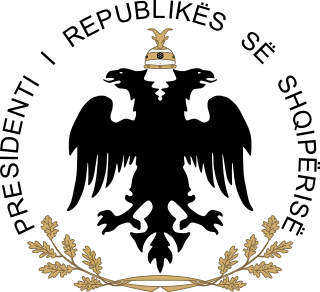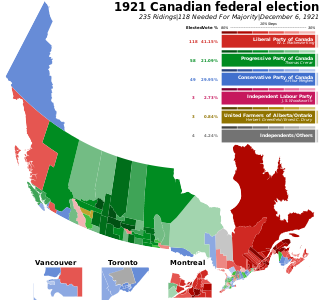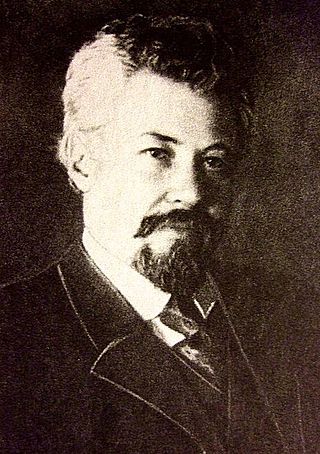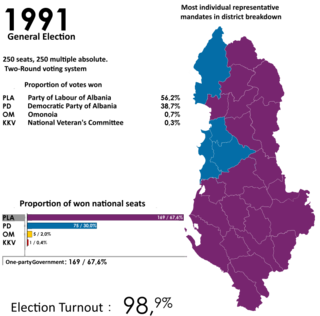| |||||||||||||||||||||
All 102 seats in the Assembly 52 seats needed for a majority | |||||||||||||||||||||
|---|---|---|---|---|---|---|---|---|---|---|---|---|---|---|---|---|---|---|---|---|---|
| |||||||||||||||||||||
| |||||||||||||||||||||
 |
|---|
Constituent Assembly elections were held in Albania in November and December 1923, [1] [2] with the second round taking place on 27 December. [3]
| |||||||||||||||||||||
All 102 seats in the Assembly 52 seats needed for a majority | |||||||||||||||||||||
|---|---|---|---|---|---|---|---|---|---|---|---|---|---|---|---|---|---|---|---|---|---|
| |||||||||||||||||||||
| |||||||||||||||||||||
 |
|---|
Constituent Assembly elections were held in Albania in November and December 1923, [1] [2] with the second round taking place on 27 December. [3]
During 1923 tensions had been building between religious groups, with Christians unhappy at former Ottoman officials continuing to take advantage of their position and taxes from the wealthier Christian parts of the country subsidising a government led by the Muslim Ahmet Zogu. [4] Following several political assassinations, in August Zogu agreed to a Constituent Assembly being elected later in the year. [4]
Zogu's faction won 44 seats and opposition candidates 39. The 19 independent candidates, most of whom were conservative, gave their support to Zogu, allowing him to form a government. [3]
However, opposition parties alleged there had been electoral fraud, claiming that their strong performance in the first round of voting should have led to them winning a majority in the second round. [3] The Dielli newspaper reported that the government had terrorised the electors into voting for their candidates. [3]
The new parliament convened for the first time on 21 January 1924. [5] Although Zogu was narrowly re-elected as Prime Minister, he resigned two weeks later, allowing Shefqet Vërlaci to become head of government. [4]
The Enchele's polity was the earliest to emerge and centered in Albania. Also the earliest known Illyrian king, Bardylis, emerged in what is now Albania around 400 BC, aiming to make Illyria a regional power interfering with Macedon. He united many southern Illyrian tribes under his realm and defeated the Macedonians and Molossians several times, expanding his dominion over Upper Macedonia and Lynkestis. Before the Rise of Macedon Illyrians were the dominant power in the region. The kingdom of the Taulantii under Glaukias' rule was based in central Albania and dominated southern Illyrian affairs in the late 4th century BC, exerting great influence on the Epirote state through the close ties with the Molossian king Pyrrhus. Under the Ardiaei the greatest known Illyrian kingdom emerged in the 3rd century BC encompassing also northern Albania in its core territory. It became a formidable power both on land and sea by assembling a great army and fleet, and directly ruling over a large area made up of different Illyrian tribes and cities that stretched from the Neretva River in the north to the borders of Epirus in the south, while its influence extended throughout Epirus and down into Acarnania. The dominant power of the Illyrian kingdom in the region ceased after the Illyrian defeat in the Illyro-Roman Wars. The last known "King of the Illyrians" was Gentius, of the Labeatae tribe.
The Second Dáil was Dáil Éireann as it convened from 16 August 1921 until 8 June 1922. From 1919 to 1922, Dáil Éireann was the revolutionary parliament of the self-proclaimed Irish Republic. The Second Dáil consisted of members elected at the 1921 elections, but with only members of Sinn Féin taking their seats. On 7 January 1922, it ratified the Anglo-Irish Treaty by 64 votes to 57 which ended the War of Independence and led to the establishment of the Irish Free State on 6 December 1922.

The president of Albania, officially styled the President of the Republic of Albania, is the head of state, commander-in-chief of the military and the representative of the unity of the Albanian people.

The 1921 Canadian federal election was held on December 6, 1921, to elect members of the House of Commons of Canada of the 14th Parliament of Canada. The Union government that had governed Canada through the First World War was defeated, and replaced by a Liberal government under the young leader William Lyon Mackenzie King. A new third party, the Progressive Party, won the second most seats in the election.

The National Assembly is the legislature for Venezuela that was first elected in 2000. It is a unicameral body made up of a variable number of members, who were elected by a "universal, direct, personal, and secret" vote partly by direct election in state-based voting districts, and partly on a state-based party-list proportional representation system. The number of seats is constant, each state and the Capital district elected three representatives plus the result of dividing the state population by 1.1% of the total population of the country. Three seats are reserved for representatives of Venezuela's indigenous peoples and elected separately by all citizens, not just those with indigenous backgrounds. For the 2010 to 2015 the number of seats was 165. All deputies serve five-year terms. The National Assembly meets in the Federal Legislative Palace in Venezuela's capital, Caracas.

Liberal Alliance of Montenegro was a Montenegrin separatist, liberal and anti-war political party, active between 1990 and 2005. The Liberal Alliance was a full member of the Liberal International from 1994 until the party's dissolution in 2005.

Elections to the Russian Constituent Assembly were held on 25 November 1917, although some districts had polling on alternate days, around two months after they were originally meant to occur, having been organized as a result of events in the February Revolution. They are generally recognised to be the first free elections in Russian history. The dissolution of the Constituent Assembly was also approved by the Left Socialist Revolutionaries and anarchists; both groups were in favour of a more extensive democracy.

Parliamentary elections were held in Kyrgyzstan on 27 February and 13 March 2005. The belief that the elections had been rigged by the government led to widespread protests, culminating in the Tulip Revolution on 24 March in which President Askar Akayev was overthrown.

The Parliament of Albania or Kuvendi is the unicameral representative body of the citizens of the Republic of Albania; it is Albania's legislature. The Parliament is composed of no less than 140 members elected to a four-year term on the basis of direct, universal, periodic and equal suffrage by secret ballot. The Parliament is presided over by the Speaker, who is assisted by at least one deputy speaker. The electoral system is based on party-list proportional representation. There are 12 multi-seat constituencies, corresponding to the country's counties.

Constituent Assembly elections were held in Nepal on 10 April 2008, having been postponed from earlier dates of 7 June 2007 and 22 November 2007. The Constituent Assembly was planned to draft a new constitution and therefore decide, amongst other things, on the issue of federalism. The number of eligible voters was around 17.5 million. The Constituent Assembly was originally set to have a term of two years.

The Albanian Republic was the official name of Albania as enshrined in the Constitution of 1925. Albania came into an alliance with the Kingdom of Italy after signing the Treaties of Tirana, which gave Italy a monopoly on shipping and trade concessions. Albania was declared a constitutional monarchy in 1928. Upon its inception, Italy demanded to be allies with the republic. This was done largely to increase Italy's influence in the Balkans, and to aid Italian and Albanian security in their territorial feuds with the Second Hellenic Republic and the Kingdom of Serbs, Croats, and Slovenes.

The Principality of Albania was a short-lived monarchy in Albania, headed by Wilhelm, Prince of Albania, that lasted from the Treaty of London of 1913 which ended the First Balkan War, through the invasions of Albania during World War I and the subsequent disputes over Albanian independence during the Paris Peace Conference of 1919, until 1925, when the monarchy was abolished and the Albanian Republic declared.
Parliamentary elections for a Constituent Assembly were held in Albania on 2 December 1945. Voters were presented with a single list from the Democratic Front, organized and led by the Communist Party of Albania. The Front won all 82 seats.

Parliamentary elections were held on 31 March 1991 to elect the 250 representatives of the People's Assembly. The first round of the elections took place on this date, followed by a second round on 7 April and a third round on 14 April. These elections represent a critical juncture in Albania's political evolution, transitioning from one party system to a multi-party democratic system. Following the death of Enver Hoxha in 1985, his successor, Ramiz Alia, encountered escalating economic difficulties and social unrest, which were intensified by the broader geopolitical transformations occurring during the Revolutions of 1989. The foundation of the Democratic Party in December 1990 served as a catalyst for legislative reforms aimed at dismantling the People's Socialist Republic.
General elections were held in Serbia, a constituent federal unit of SFR Yugoslavia, in December 1990 to elect the president of Serbia and members of the National Assembly. The presidential election and the first round of the parliamentary elections were held on 9 December, with the second round of the parliamentary elections taking place on 23 December. The elections were scheduled after the ratification of a new constitution on 28 September, which was approved by voters in a referendum held in July. These were Serbia's first multi-party elections, and the parliamentary election was the only one to be held using a first-past-the-post, two-round voting system with single-member constituencies; all future elections used proportional representation.
Indirect presidential elections were held in Albania on 30 May, 4, 8 and 11 June 2012, the seventh such elections since the collapse of the communist regime in 1991. The first through third rounds of voting were inconclusive. The fourth round resulted in the incumbent party's member Bujar Nishani being elected as President.

Parliamentary elections were held in Lithuania on 10 and 11 October 1922, electing 78 members of the First Seimas. They were the first elections held in Lithuania under the 1922 constitution, which had been adopted by the Constituent Assembly on 1 August 1922.

Presidential elections were held in North Macedonia in 2019. Three candidates were on the ballot in the first round, held on 21 April: Stevo Pendarovski, supported by the ruling coalition led by the Social Democratic Union of Macedonia, including the Democratic Union for Integration; Gordana Siljanovska-Davkova of the leading opposition party VMRO-DPMNE, and Blerim Reka, an independent supported by Albanian opposition parties Alliance for Albanians and Besa Movement. The first round did not result in an absolute majority for any candidate, with Pendarovski receiving the most votes. In the second round held on 5 May, Pendarovski defeated Siljanovska-Davkova with 54% of the vote.

General elections were held in Namibia on 27 November 2019. Ballots were cast using electronic voting. A total of eleven candidates ran for the presidency and fifteen political parties contested the National Assembly elections.

The June Revolution also known as the Antibourgeois Democratic Revolution was a revolt backed by the parliamentary opposition to the Zog I government, following the 1923 Albanian parliamentary election.